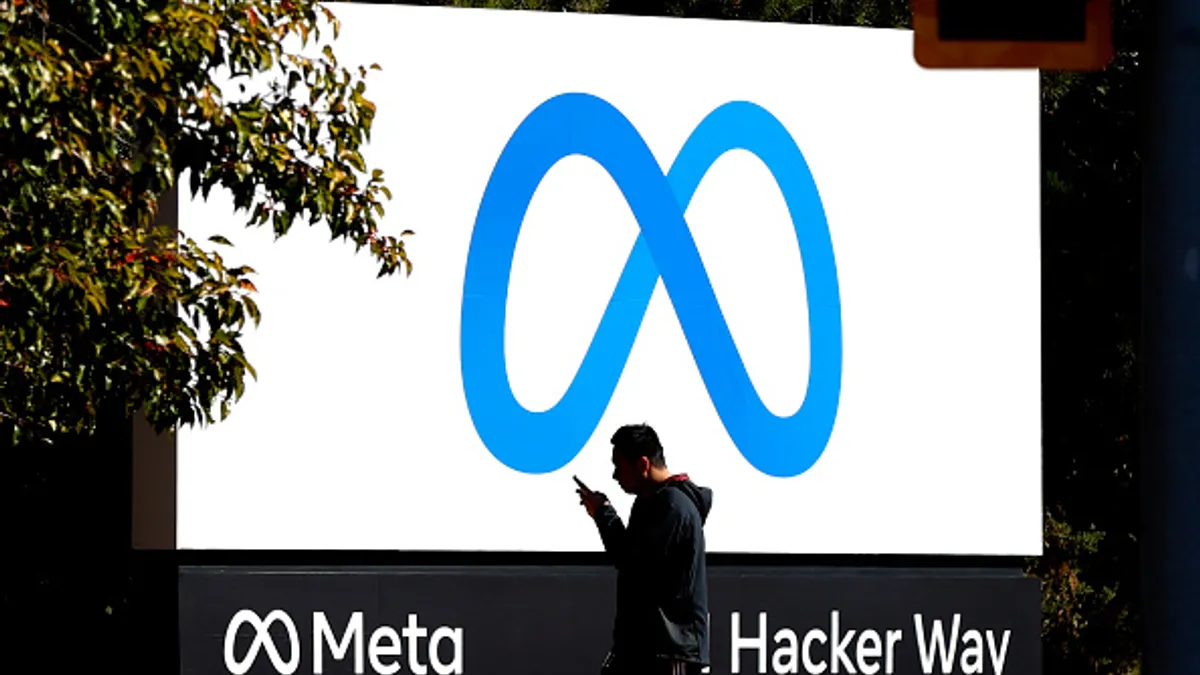The U.S. Supreme Court heard arguments in a multibillion-dollar shareholder lawsuit that accuses tech giant Meta of fraud by omitting allegedly key information from the risk disclosure statements it shared with potential investors.
The case of Facebook v. Amalgamated Bank involves a massive data breach stemming from the lead-up to the 2016 presidential election. Cambridge Analytica, a British political consulting firm, obtained data on millions of Facebook users and then used that data to create psychological profiles of American voters to help the presidential primary campaign of Sen. Ted Cruz, a Texas Republican. The data breach ultimately affected 30 million Facebook users.
Facebook’s annual 10-K filings with the Securities and Exchange Commission warned about improper third-party access and the misuse of private user data as a hypothetical risk that could harm the company’s business and reputation. But it did not mention that such a data breach had occurred.
That omission did not sit well with the Supreme Court’s more liberal justices during an unusually lively oral argument on Wednesday.
Justice Elena Kagan wondered, for instance, if a company warned generally of a fire risk but knew that a recent fire had destroyed 50% of a plant’s production capacity, if the company’s omission of the fire damage would be misleading.
When Meta’s attorney Kannon Shanmugam said there would be no implied misrepresentation in that instance, Kagan countered, “That’s going to be of interest to the reasonable investor,” and likened the situation to Facebook’s omission.
“You’re throwing the investor off the scent,” Justice Ketanji Brown Jackson said later in noting that a general warning leads reasonable investors to believe no data breach happened in the past.
The attorney representing the plaintiffs in the case, Kevin K. Russell of Goldstein, Russell & Woofter, made a similar point. “Our theory of liability is this monumentally important event happened in the past, and Facebook misled investors by not disclosing this occurrence,” said Russell.
But several of the court’s conservative members appeared concerned that SEC regulations did not require such a disclosure.
Chief Justice John Roberts told Russell, “It seems to me this would be a real expansion of the disclosure obligation.”
Along similar lines, Justice Brett Kavanaugh wondered why the SEC could not resolve the case with clearer instructions. “This raises lots of questions for companies about what they have to disclose and what they don’t,” he said.
The Biden administration sided with the plaintiffs, with Assistant Solicitor General Kevin Barber telling the court, “This is a bread-and-butter half-truth case.”
But Shanmugam warned the justices that the implications of a win for the plaintiffs would be to hold companies liable for warning about all sorts of risks for anything that had ever occurred in the past. He suggested that such a result would trigger concerns about over-disclosure by companies in risk disclosure statements.
A divided Ninth Circuit Court of Appeals panel found that Facebook’s risk statements were misleading when it knew the exact risk had already happened. Falsely implying that serious misappropriation had not occurred was misleading, the panel held, even if the extent of the ensuing harm remained unknown.










